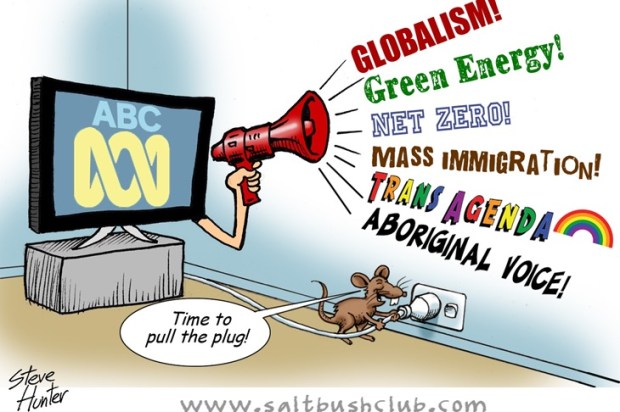 Last Thursday Dr Anne Aly, the Member for Cowan, shared a video of herself shredding the Institute of Public Affairs’ submission to the Free Speech in Australia inquiry and in doing so she demonstrated the attitudes that many have towards opinions that they don’t like: to shut them down by whatever means possible.
Last Thursday Dr Anne Aly, the Member for Cowan, shared a video of herself shredding the Institute of Public Affairs’ submission to the Free Speech in Australia inquiry and in doing so she demonstrated the attitudes that many have towards opinions that they don’t like: to shut them down by whatever means possible.
On her post Dr Aly asks “what kinds of racially motivated things do Malcolm Turnbull, the Liberals and the IPA want to say that they’re not allowed to right now?”
I can’t speak for Mr Turnbull, the Liberal Party or the IPA but as an ordinary Australian I’ll have a go at answering. We want the freedom to be able discuss touchy subjects like Aboriginal disadvantage, immigration policies and freedom of religion without fear that somebody hearing what we have to say will feel offended enough to initiate an 18c complaint with the AHRC.
In 2002 WA Senator Ross Lightfoot was found guilty of breaching 18c for comments he made in parliament in 1997 in which he said “Aboriginal people in their native state are the most primitive people on Earth” and “If you want to pick up some aspects of Aboriginal culture which are valid in the 21st Century, that aren’t abhorrent, that don’t have some of the terrible sexual and killing practices in them, I would be happy to listen to those.”
These comments would no doubt be offensive to many Aboriginal people (and not offensive to others) but he claimed to have arrived at his opinions based on a number of accounts by historians and anthropologists.
Despite a full apology and dismissal of the complaint in 1999, his comments were later ruled unlawful on appeal in 2002. Section 18d didn’t protect Mr Lightfoot even though his remarks were an ‘expression of a genuine belief held by the person making the comment.’
If you disagree with Mr Lightfoot’s assessment of Aboriginal culture pre-colonisation, then surely the best response is to present evidence to the contrary instead of making punitive claims that try and stop the expression of similar points of view in the future. Freedom to discuss pre-colonial Aboriginal culture is essential in addressing the existing problems of violence and sexual abuse in some remote communities and ought to be part of the discussion.
On the same day that Dr Aly shredded the IPA’s submission, the British Police registered as a ‘hate incident’ a speech given by Home Secretary Amber Rudd last year in which she addressed labour economics and foreign workers in the UK.
The speech was reported by a physics professor who felt that her remarks about immigrants taking jobs that British people could do constituted ‘picking on’ foreigners.
The irony of this situation is that Ms Rudd herself approved a ‘hate-crime’ action plan that promised tougher sentences for racist crimes and stated that hateful acts committed against a somebody because of their “community, race or religion” have “no place whatsoever in our diverse society” and must be “kicked to the kerb”. Talk about being hoist by your own petard.
Hate speech and other laws like 18c are often the result of the best of intentions: to try and protect people from racist actions and speech, but as we can see from the example of Ms Rudd’s ‘hate incident’ the laws aren’t always applied in the way they were originally intended. There will always be people taking advantage of existing laws to push their agenda or for their own self interest.
18c doesn’t protect people from hearing offensive things and it doesn’t prevent racism. We have had 18c for over 20 years and yet racist incidents still occur. Serious racial vilification is addressed by state laws rendering 18c redundant in terms of protecting people from serious racial hate crimes. What’s left are grievances based on emotive terms like ‘insult’ and ‘offence’.
It may sound far-fetched that political dialogue between ordinary Australians could become the subject of an 18c complaint, but recent high profile cases demonstrate that even the mildest commentary could sufficiently offend the litigious.
In Bill Leak’s case complaints were even actively sought from Aboriginal people living remotely, who were approached, shown his cartoon and asked if they were offended.
These occurrences have the desired effect; they mean that people start to self censor just in case. They chill political discourse which is, despite claims to the contrary, detrimental to all Australians.
People who support repeal or reform of 18c are not racist bigots who are jumping at the chance to start denigrating ethnic minorities. Nothing could be further from the truth. Many people are concerned with 18c because it imposes an unnecessary restriction on freedom of political expression and while doing so, neglects to protect the people it claims to protect. It doesn’t prevent racism, and it doesn’t stop people seeing or hearing offensive things.
This action of shredding a document publicly is a cheap shot that denigrates the concerns of free speech advocates. It speaks to the mindset that sees other points of view as unworthy of consideration, or even too dangerous to be heard.
I’m not sure if Dr Aly read the submission before she discarded it but her message is clear: no matter how well thought out a case against 18c may be, she doesn’t want to know.
Nicola Wright is a writer at LibertyWorks
Got something to add? Join the discussion and comment below.
Get 10 issues for just $10
Subscribe to The Spectator Australia today for the next 10 magazine issues, plus full online access, for just $10.
























Comments
Don't miss out
Join the conversation with other Spectator Australia readers. Subscribe to leave a comment.
SUBSCRIBEAlready a subscriber? Log in